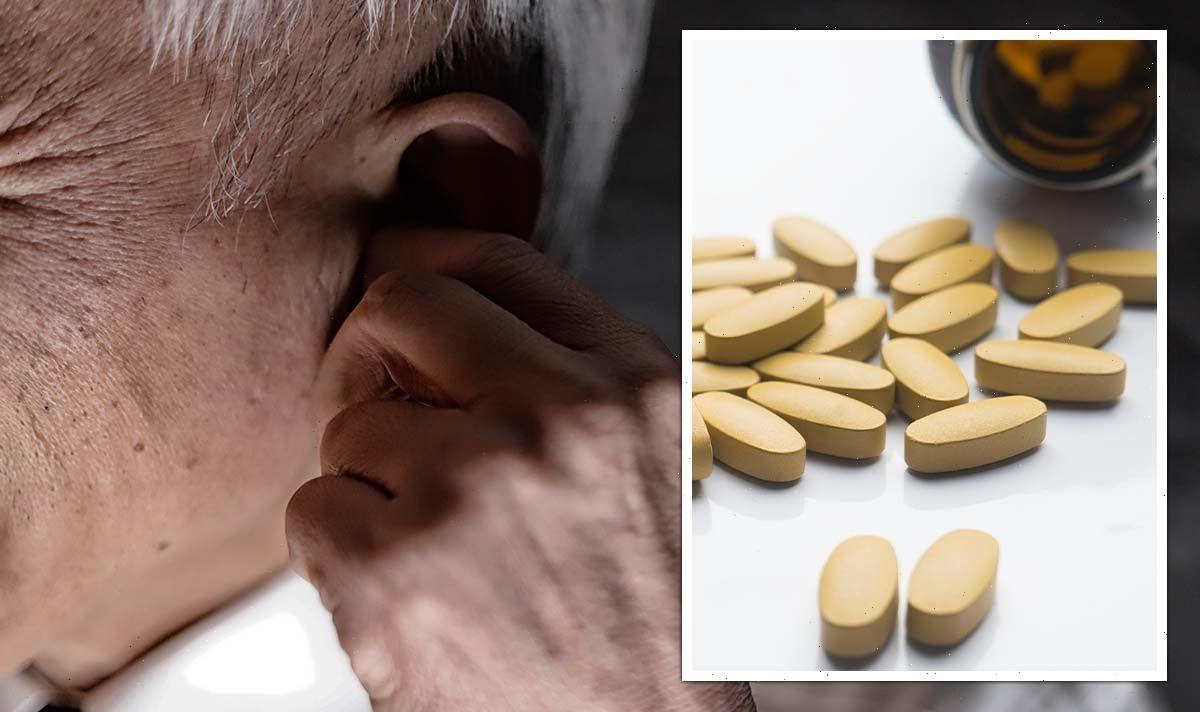Tinnitus: Dr Philippa Kaye discusses common symptoms
We use your sign-up to provide content in ways you’ve consented to and to improve our understanding of you. This may include adverts from us and 3rd parties based on our understanding. You can unsubscribe at any time. More info
Tinnitus is a known sign of age-related hearing loss. But the onset of ringing and other sounds in your ears might also be a sign of vitamin B12 deficiency, also known as folate deficiency anaemia.
The job of vitamin B12 is to keep your blood and cells healthy, among other things.
When levels of the nutrient are low, ear cells can become damaged, which is what causes tinnitus.
Vitamin B12 deficiency, or folate deficiency anaemia, has been shown in studies to kick-start damage in the nerve cells of your ears through a process called demyelination. This is when the protective layering that surrounds your nerves becomes damaged.
The types of sounds you may hear in your ears if you have tinnitus include ringing, buzzing, whooshing, humming, hissing and throbbing, explains the NHS.
In tinnitus, these sounds specifically come “from inside the body, rather than from an outside source”, states the NHS.Vitamin B12 deficiency is also connected to symptoms such as breathlessness and headaches.
In some rare cases, being deficient in it can cause the heart to become too weak to pump blood around the body.
Where can you get vitamin B12 from
Roughly one in 10 people in the UK are thought to have a vitamin B12 deficiency. The high rates of the condition “could be attributed to dietary habits such as vegetarianism”, according to a study in the international journal Noise & Health.
DON’T MISS
High cholesterol: Signs on your face that increase risk of death [INSIGHT]
Popular drink linked to many chronic conditions – ‘Toxic’ [ADVICE]
Heart attack: Sign on the ear could predict heart attack [INSIGHT]
It could also be linked to poor intake of milk and milk products, concluded the study. The main foods that provide vitamin B12 are dairy products and eggs.
In the UK, one egg is said to contain over half the amount of vitamin B12 you would need for the day.
However, vegans can obtain vitamin B12 from nutritional yeast. One tablespoon of nutritional yeast contains the necessary amount of B12 needed for the day.
Vitamin B12 isn’t a condition to take lightly. Its symptoms develop gradually but can worsen over time if left untreated.
The other symptoms of anaemia caused by vitamin B12 deficiency include mouth ulcers, a pale yellow tinge on skin.
It also includes the following:
-
Irritability
-
Pins and needles
-
Depression
-
Changes in the way you think and feel
-
Dementia, disturbed vision. Anaemia in some serious cases can increase your risk of cancer such as colon cancer.
It can also increase your risk of coronary heart disease. Low intakes of vitamin B12 have been linked to a risk of a chemical called blood homocysteine.
Homocysteine can increase the risk of blood vessels blocking up. Homocysteine is a type of amino acid that is used to make proteins.
Vitamin B12 usually helps transform it into something useful to the body.
But with lower levels of this vitamin, there is more of it hanging around – which is what causes a greater risk of blood clots.
Source: Read Full Article



